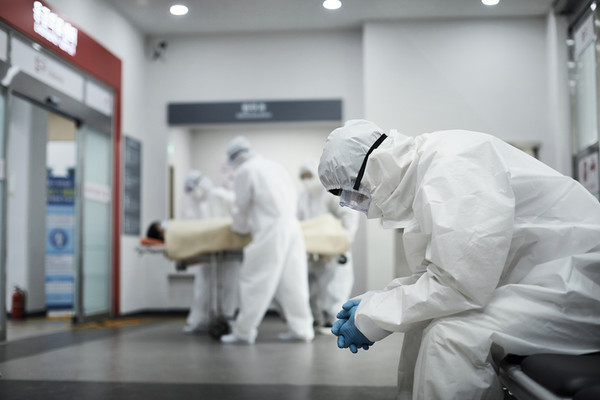Korea is readjusting its approach to Covid-19. Commencing this Thursday, the country intends to classify the Covid-19 infection severity at its least severe, prompting a sequence of policy modifications that liken the management of the virus to that of influenza.

In the past, the government covered the complete expense of the rapid antigen test (RAT) for individuals displaying symptoms, along with a portion of the polymerase chain reaction (PCR) test and hospitalization costs for those who tested positive.
Nonetheless, under the updated guidelines, this extensive coverage will no longer be offered. This implies that citizens will now be required to cover the entire cost of RAT, polymerase chain reaction (PCR) tests, and hospitalizations.
However, individuals who are recommended oral Covid-19 treatments covered by health insurance will be eligible for a 50 percent subsidy for RAT. Additionally, certain categories, including individuals aged 60 and above, those over 12 with underlying conditions, high-risk hospitalized patients, and those in emergency departments and ICUs, will continue to have their PCR tests fully covered.
In terms of treatment, the government will seek to get Covid-19 treatment covered by health insurance, rather than directly funding the cost.
Also, the government will shift its financial support focus more on critically ill Covid-19 patients, including bearing ICU fees and specialized treatments such as non-invasive ventilators, high-flow nasal oxygen therapy, and ECMO until the end of this year.
However, some supportive measures are being rolled back. Financial aid for living expenses of households earning below the median income and compensation for companies aiding quarantined or hospitalized employees due to Covid-19 will cease.
Which measures stay?
The government remains resolute in certain preventive measures. Masking requirements will persist within hospitals, and residents of nursing homes and similar facilities will still undergo mandatory Covid-19 testing.
While the government has scaled back some of its financial support, its commitment to the five-day quarantine recommendations for confirmed cases also remains unchanged.
In the realm of vaccination, the government ensures that its citizens won't have to dig into their pockets as Covid-19 vaccinations will remain free.
Healthy citizens will be vaccinated once annually, whereas immunocompromised individuals will get their shots twice a year. Notably, the nation is gearing up for this winter's vaccination drive, setting its sights on the XBB variant starting in October.
Related articles
- Korea to downgrade Covid-19 infectious disease level on Aug. 31
- ‘Downgrade of Covid-19 response will reveal overburdened healthcare system’
- 99.8% of 10,000 Koreans surveyed had Covid-19 antibodies: study
- Korea reports 1st case of Pirola, the new variant of Covid-19
- Pfizer's Covid-19 vaccine targeting XBB variant gets emergency approval

